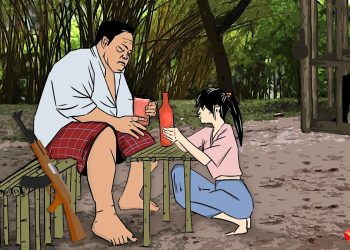HONG KONG — A state-owned Chinese retail chain has suspended sales of elephant ivory after a series of high-profile seizures of smuggled ivory in Hong Kong and protests by conservation groups drew growing attention to the trade.
Chinese Arts & Crafts suspended sales of elephant ivory at its stores in China and Hong Kong beginning in mid-March, it said in a statement e-mailed to Reuters late on Tuesday.
“Due to the adjustment of product mix, Chinese Arts & Crafts (H.K.) Ltd has suspended the business of selling (elephant) ivory products at all Chinese Arts & Crafts branches,” it said.
The World Wildlife Fund ranks China as the world’s biggest end-market for illegal elephant ivory and animal rights groups say demand there is fuelling a surge in poaching in Africa.
Hong Kong, a free port on the country’s southern coast, has long served as a key trans-shipment point for illegal tusks.
“It goes a long way towards stigmatizing the consumption of ivory and ivory products,” Alex Hofford, program director for Hong Kong for Elephants and consultant for WildAid, said in an e-mailed statement.
China, whose government-licensed ivory carving factories provide the basis for a legal trade, has been criticized for ignoring a parallel black market and being slow to enforce tough laws that could jail convicted smugglers for life.
Earlier this month, former NBA basketball star and delegate to the Chinese People’s Political Consultative Conference, Yao Ming, called for an end to ivory sales, saying “buying ivory is buying bullets,” according to the official Xinhua news service.
About 22,000 elephants were illegally killed in 2012, according to the Convention on International Trade in Endangered Species (CITES), which banned trade in elephant ivory in 1989 and later allowed a limited amount to be sold.
The total population of African elephants is now estimated at between 420,000 and 650,000.
Harder Line on Smuggling
Chinese Arts & Crafts, whose Hong Kong shops sell all kinds of ivory products, said it would now promote carvings from the tusks of mammoths, which have been extinct for about 10,000 years and so do not come under the elephant ivory trade ban.
“Mammoth ivory can be used as a cover for the illegal ivory trade and the consumption of mammoth products can stimulate demand in African elephant ivory products,” Hofford said, adding the chain’s decision was still a commendable first step”.
Already a member of CITES, China has been hinting it could take a harder line on elephant ivory. It participated in last month’s London Conference on the Illegal Wildlife Trade, which urged a tougher stance on the ivory trade.
In January, China followed the United States, Philippines and other countries in destroying contraband ivory by crushing 6.2 tons of confiscated ivory in its first such public event.
Hong Kong, a special administrative region of China, followed suit several weeks later, saying it would burn 28 tons, or 95 percent of its stockpile of seized ivory.
A spokeswoman for Chinese Arts & Crafts, part of the state-owned China Resources Enterprise Ltd, said the ivory sales suspension was not driven by political considerations.
The suspension applies to all ten of the company’s stores in Hong Kong and China, though the six stores in mainland China do not currently sell ivory, she said.

















